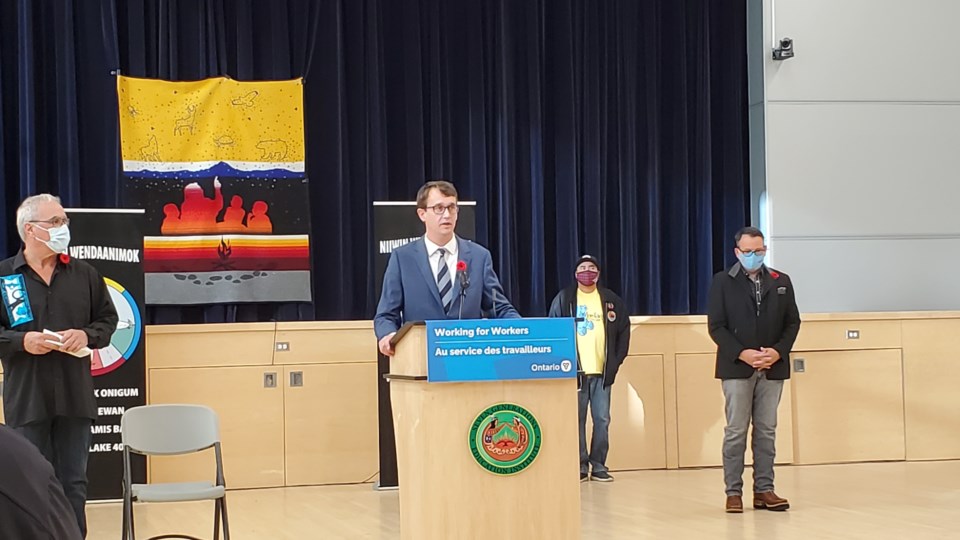KENORA, Ont. – More than 100 members of Treaty #3 First Nations are receiving free training so they can get jobs on the Highway 17 twinning project west of Kenora.
The announcement was made Tuesday at the Seven Generations Education Institute by Ontario Labour, Training and Skills Development Minister Monte McNaughton.
He said the province is investing more than $3.7 million to train 110 people for employment as construction craft workers, heavy equipment operators, general construction workers and concrete workers.
Some of the jobs currently pay up to $44 an hour.
Each participant receives up to $3,000 to cover costs such as transportation, childcare and other expenses during training between March 2021 and July 2023.
The program primarily benefits members of four First Nations in Treaty 3 territory represented by the Niiwin Wendaanimok communities.
Funding for Niiwin Wendaanimok's new project is supported by labour market transfer agreements between the federal and Ontario governments.
It will prioritize people who are unemployed, underemployed, or at risk of losing their jobs.
"We know from experience that, given the chance, our young men and women can really shine. This project will help them make their contribution," said Chief Vernon Redsky of Shoal Lake 40 First Nation.
In a statement, the government noted that large construction projects in the Kenora region often rely on the use of outside labour.
This has left many First Nations people, it said, without the skills and work experience to qualify for jobs when they become available.
The training provided through this project will include secondary school upgrading, driver's education, workplace safety, and certification and skills training.
The province said participants should also be able to get jobs on projects other than the Highway 17 twinning.
In 2020, the unemployment rate for Indigenous people in Ontario was 12.5 per cent compared with 9.5 per cent for the non-Indigenous population.
